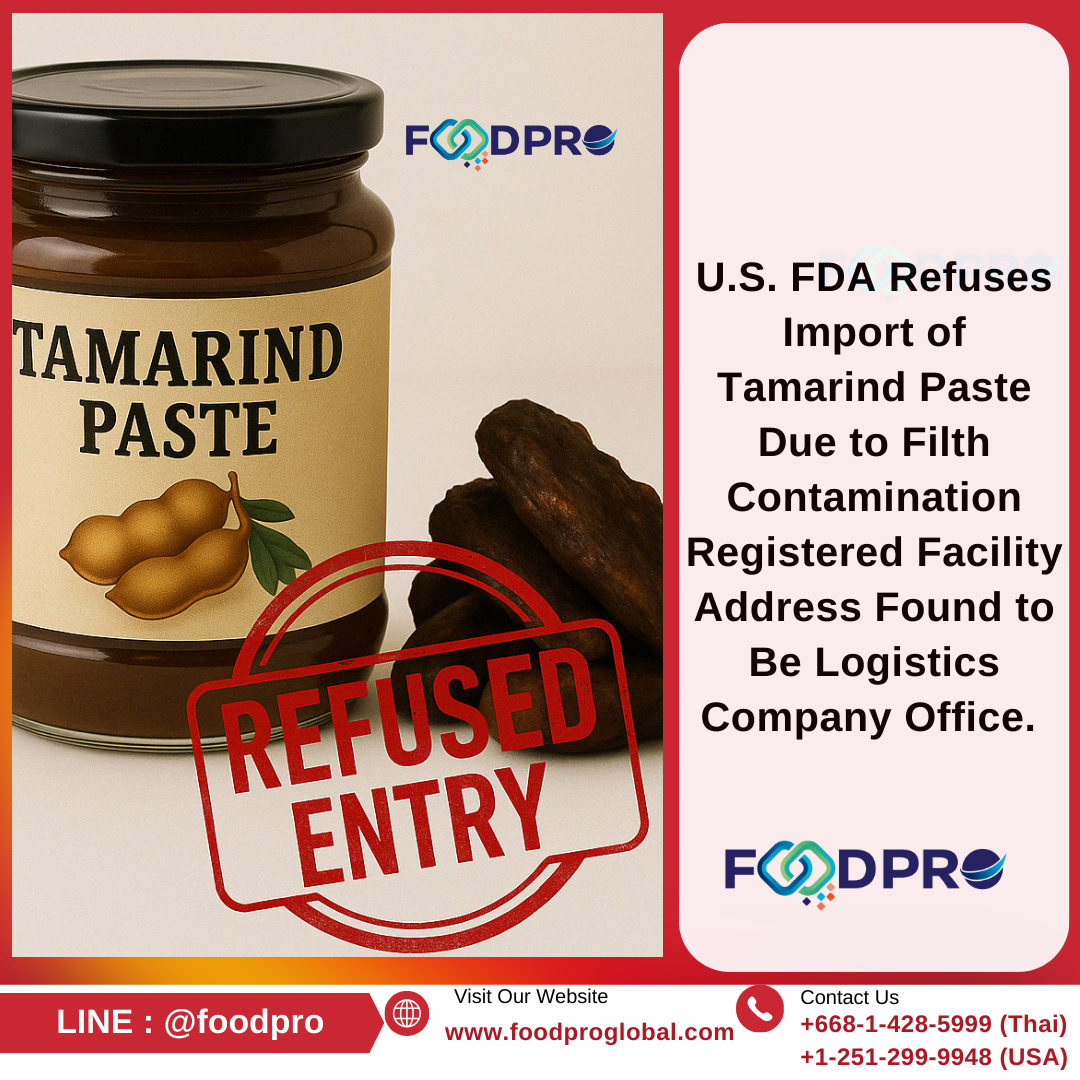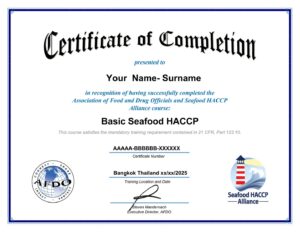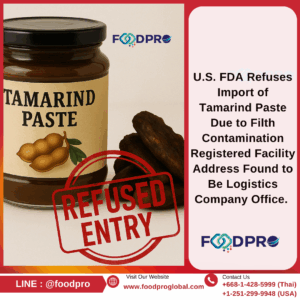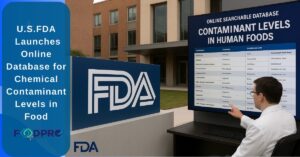U.S. FDA refused entry of tamarind paste due to filth contamination. Food facility that has registered for mnufacaturing. processing packing, and houlding as foreign facility is an office of logistics company in Thailand.
In January 2025, the U.S. Food and Drug Administration (FDA) refused the importation of tamarind paste from Thailand due to contamination issues classified as “filth.” Upon investigation, it was found that the facility registered with the FDA for manufacturing, processing, packing, or holding the tamarind paste was, in fact, the office address of a logistics company. This location might not conduct any food-related activities.
According to FDA regulations, facilities involved in the manufacturing, processing, packing, or holding of food for consumption in the United States must register with the FDA and provide accurate information about their operations. Using an office address that does not engage in these activities can lead to import refusals and potential regulatory actions.
Exporting food products from Thailand to the United States requires strict adherence to the safety standards set by the U.S. Food and Drug Administration (FDA). One of the most common reasons for import refusal is contamination known as “filth,” which includes objectionable matter such as insect fragments, rodent hairs, or other unsanitary substances that may occur during production, processing, or packaging. Failure to comply with these standards can lead to import refusals, adversely affecting business operations and the reputation of exporters.
Causes of Import Refusal Due to “Filth”
Contamination from Animals and Insects: Presence of insect fragments, rodent hairs, or animal excreta that may contaminate products during production or packaging
Unsanitary Production Environment: Facilities that are not properly maintained or cleaned can lead to contamination.
Improper Storage and Transportation: Using unclean containers or failing to control temperature and humidity during transportation can result in product contamination.
Preventive Measures Against “Filth” Contamination
Adherence to Current Good Manufacturing Practices (CGMPs)
Facilities should follow CGMPs as defined by the FDA to ensure cleanliness and safety throughout the production process.Pest and Animal Control
Implement measures to prevent the entry of insects and animals into production and storage areas.Product Inspection and Quality Testing
Conduct thorough inspections and testing of products before export to ensure they are free from contaminants.Employee Training
Educate and train staff on the importance of hygiene and proper practices in production and packaging.Development of a Hazard Analysis and Risk-Based Preventive Controls (HARPC) Plan
Create a HARPC plan to identify and control potential risks in the production process, as required by the FDA.
Actions to Take if Products Are Refused Entry
If products are refused entry due to “filth” contamination, exporters should:
Investigate the Cause: Review FDA reports to determine the exact reason for refusal.
Improve Production Processes: Make necessary changes to production and packaging processes to meet FDA standards.
Request Re-evaluation: If issues are resolved, submit a request to the FDA for re-evaluation of the product for import.
However if food establishment indentification is not involving manufacturing, processing, packing, and holding activities of food, it is not possible to control hazard.
Strict compliance with FDA standards and guidelines is essential to minimize the risk of import refusals and to enhance confidence in the quality of Thai products in the U.S. market.
For further information or specific guidance on exporting food products to the United States, please contact the relevant authorities or export specialists for additional assistance.




